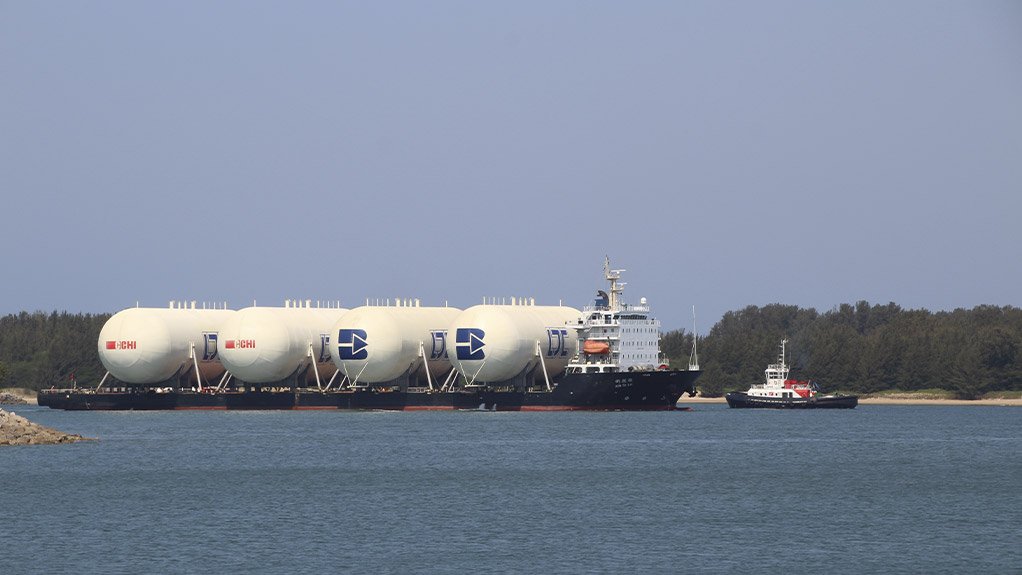Construction of a new liquefied petroleum gas (LPG) facility at the port of Richards Bay in South Africa is nearing completion. This is after Transnet National Ports Authority (TNPA) welcomed the arrival of four new 5 650 tonne LPG storage bullets to be mounted at the 22,600 tonne capacity facility whose construction begun in October last year.
Thami Sithole, Richards Bay port manager said that the arrival of the bullets is a thrilling milestone not only for the port of Richards Bay but for the future of LPG supply in South Africa.
He also acknowledged the projects stakeholders for this breakthrough adding that they look forward to the launch of the terminal. The terminal is set to begin operations in 2020.
The project
The US $67.8m facility which has been under construction by Bidvest Tank Terminals (BTT) for Petredec, an independent LPG specialist that ships fuel from the US and the Middle East.
It is also expected to allow for a commendable increase in the cost-effectiveness, reliability, and safe supply of LPG to South Africa due to its proximity to main rail and road routes heading to the South African interior, where most of the LPG will be used.
Additionally, according to Mr. Sithole, the terminal will enable the port of Richards Bay to serve ships that trade, transport, store, and distribute LPG, which in the past would frequently been forced to remain on lay outside the port for weeks and months, while incurring costs.
Also Read: Tender for construction of South Africa’s first LNG terminal to be launched next year
Another bulk storage facility for Richards Bay
The Petredec’s terminal is not the only bulk storage facility planned for Richards Bay port. The port is currently looking for private sector investment partners to operate an intended multi-million-dollar liquefied natural gas (LNG) storage and regasification terminal.
Until now, the port’s parent company, Transnet, has signed a cost-sharing agreement for a feasibility study with the World Bank’s International Finance Corporation (IFC), which has committed US $2m to the study.
